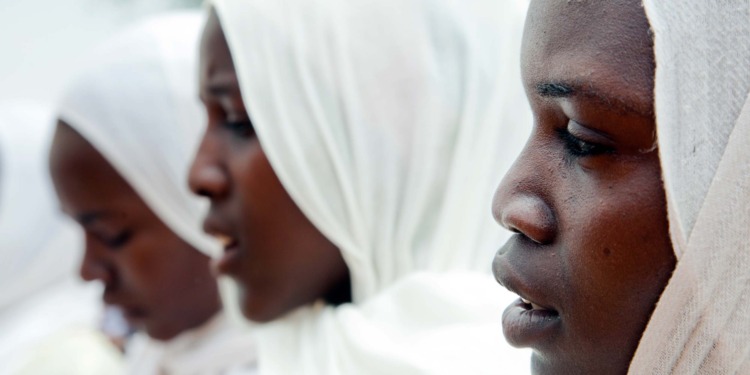The spread of a fatal strain of fungal species, Candida auris, is believed to have emerged as a consequence of climate change, with fears it may have a disproportionate impact on the health of women and girls.
This is a finding from Michelle Wright, Ph. D from the University of Texas at Austin, who reports microbiologists are fearful of the strain’s ability to adapt to higher temperatures.
In order to protect itself from disease, the body’s internal temperature works to ward off fungal infections which cannot survive its heat. To put this into perspective, for every 1°C gained by the body within the range of 30 to 42°C, the immune system becomes less susceptible to 6% of fungal species.
Global warming could threaten this immunity.
As the temperature of the environment increases, infections are able to adapt to higher temperatures in the body, resulting in disastrous impacts on health.
The challenges faced by women of colour
Women from disadvantaged backgrounds have historically been barred from accessing adequate healthcare, forced to bear the devastating effects of this systemic inequality.
Food insecurity leaves women unable to consume enough nutrients to fight against infection. It is among a few of the considerable driving forces thrusting them into a position that makes them vulnerable to disease.
Climate change
Conflict
Soaring food and fuel prices
Food insecurityThe global goal of ending extreme poverty by 2030 is no longer achievable.https://t.co/bQKiKUHd6A#InvestInHumanity pic.twitter.com/wUFDS4C5FF
— UN Humanitarian (@UNOCHA) February 26, 2023
According to Wright, the role of the domestic caregiver often falls on the shoulders of women in developing countries. When they are unable to provide for their families due to climate catastrophe, their needs are the last to be met, often deprioritizing themselves and resorting to eating last or not at all.
For example, in Mali, women trek dangerously to fetch unsanitary water for their families, creating a breeding ground for disease where they are also exposed to the harrowing threat of gender-based violence. Wright, in her report, calls for investment strategies that directly serve the needs of women who face the worst of the health inequalities that climate change produces.
Related Articles: Female Activism in the Anthropocene: 15 Women Fighting For Our Future | Power On: How We Can Supercharge an Equitable Digital Future | Spain Approves Historic Gender Equality Law: A Stepping Stone to Wider Equality? | Fungi, Zombies and Climate Change: What’s the Link?
What’s more, as Director of the Green Economy Coalition Jean McLean tells Impakter:
“The impact of climate change on access to water and food is a burden that women increasingly pay the cost for in terms of reduced resilience and nutrition. This increased vulnerability magnifies the susceptibility that women and girls face in the face of viruses and new strains of diseases.”
Any effective health response needs to recognise the impacts of climate change and how this in turn has a different, more severe impact on women and girls when combined with existing inequalities.”
Looking forward: Creating integrated SDGs
With the aim of mitigating the issues most prominent in global societies, the Sustainable Development Goals are described as a “universal call to action.” At the moment, climate change and gender inequality occupy different sections of the SDGs, hindering any channels of communication between the two.
Therefore, there is a need for an approach inclusive of both health and climate-related targets to confront climate change from a gendered perspective.
One of the fundamental insights of the One Health approach is recognising the intersections between human, animal and environmental health.
A report utilizing this framework was produced by the World Bank in 2018 and looked at minimizing the spread of disease in agricultural environments.
The study identified that as agriculture expands in poor rural communities, so does the potential for disease. And since women are usually in charge of taking care of livestock, they are more vulnerable to the threat of infections.
Although One Health is included in SDG 13 on climate change, the approach remains insufficiently implemented into the SDGs across all sectors.
In 2017, the “gender action plan” was launched to fortify women’s role in climate action, but without “systemic integrative processes” to relieve the burden placed on women and girls, their susceptibility to disease remains high.
Irregular weather patterns that destroy livelihoods and create food insecurity require climate-resilient farming with women at the forefront, to both educate and empower their role within their respective communities.
Ensuring women’s roles in finding climate solutions
Cecilia Sorensen believes that placing women at the forefront is a large part of the solution, as she wrote in the medical journal PLOS:
“Recognizing women’s roles as educators, caregivers, holders of knowledge, and powerful agents of social change positions women to effectively design and implement culturally acceptable interventions where they are needed most.”
In the Indigenous Fijian community, 92% of women generated income in manufacturing and producing food. The study identified that they cared deeply for their environment and had extensive knowledge of its natural resources, suggesting women across rural areas tend to make a large contribution to the social and economic wellbeing of their communities.
Editor’s Note: The opinions expressed here by the authors are their own, not those of Impakter.com — In the Featured Photo: Women singing at the opening of a new clinic, women’s centre and school in North Darfur, Sudan. Featured Photo Credit: UNAMID / Albert González Farran










